|
We know that the Bible often quotes itself. This might seem narcissistic if it was written by one author, but since it was written by 40 authors and is more like a library of books (containing many genres and writings styles) than a single book, this cross-referencing makes more sense. After all, we see authors often cite and quote other authors that have written on the same subject all the time. So how many times in the Bible does an author reference an earlier passage from the Bible? The answer is staggering: 63,779 times. Given that the Bible is compiled of 66 books, with at least 40 different authors, over the time period of about 1,500 years, all of which took place before the printing press and mass production of documents...that's actually really incredible. It makes me really consider the role that the Holy Spirit had in inspiring and guiding the authors in their work.
I once read a book that made the footnotes available as a download because there were so many of them, the footnotes were longer than the book itself, and the publisher was basically like, it doesn't make sense financially to print all of these notes. Give it to people electronically if they want all that. Point is, the more scholarly the work, the more likely it is to have a robust footnote section and/or appendices (assuming the author is happy to actually cite their sources and wants their readers to be able to dig deeper and check their work). This graphic is very much an illustration of what it would look like if you drew all the cross-reference footnotes in the Bible as arcs. This illustration is a bit of what scholarship looks like. And to think there are still skeptics out there that think these authors were ignorant, illiterate people for whom a wheelbarrow would have been impressive technology (Sam Harris). Perhaps they deserve a bit more credit than that. In addition to the authors of the Bible composing written predictions for the future that turn out to be correct (a conservative estimate puts the number of prophecies about Jesus from the old testament at over 300, all of which came true), writing accurate descriptions of current events and past events at the highest level, and even writing about past events so distant that they would have had no way of knowing or validating them (consider the writings of creation events from Genesis 1, which correctly states the initial conditions of the primordial earth as well as lists 10 acts of creation in the correct scientifically chronological order - Dr. Hugh Ross). They also knew the writings that came before them that could be trusted as the Word of God and the others that could not be trusted. They knew those writings well, scrutinized them heavily, and they used those that passed the tests. They expanded upon them and provided greater insight. If they hadn't done that, we would have a collection of disparate and largely disconnected works each with their own perspective and motivations, much like a normal library does. Instead what we have in the Bible is this compilation of works that weave together like an elaborate tapestry that displays evidence of having been overseen by someone who transcends the space and time in which these writings were made. There is a grand design at play in the Bible. The graphic above is a visualization put together by Chris Harrison with the research provided by Christoph Römhild. Every book in the Bible is represented by the bar graph running along the bottom, each book alternating between light and dark grey. The light and dark grey bars at the bottom represent each verse, the height of those bars correlating to the length of the verse itself. The colored lines arching over the top connect each verse that refers to another verse and are color-coded by the distance between the two relevant verses. I'm really impressed with this project and with how well it illustrates for us how connected the various parts of the Bible are. The Bible is a collection of works that is nothing short of miraculous in so many ways, and this graphic gives us a very accessible image of one of those ways. If you're interested to see the original source of the graphic and to learn more about Chris Harrison's other work, I'd strongly encourage you to visit his site here. He's got some really incredible work there. I hope that this piece will help to strengthen your faith in the reliability of the Bible as well as give you a sense of the incredible lengths and effort to which our Creator went to reach us.
0 Comments
"What I believe in my heart must make sense in my mind." - Ravi Zacharias This site is in its infancy. It's really only been up and running for a couple of weeks and already I've had Ravi Zacharias come up in two of my six posts. The very first time I ever heard an apologist speak was Ravi Zacharias responding to a questioner after one of his presentations (see my blog on that here). After binge watching every Ravi video and presentation I could find, I stumbled onto a Q&A that he and Dr. Hugh Ross did at Ohio State University years ago (see my blog on that here). Then I spent months binge watching videos and presentations by Hugh Ross as well. I was totally hooked. "Hooked" might have been an understatement. I became obsessed with learning as much as I could about Christian apologetics. These apologists seemed to have responses to questions that I thought were previously unanswerable. They had insight into how scripture fit with modern developments in science, philosophy, archaeology, geology, the arts, history, and other disciplines. They even had sound arguments as to how scripture led us to these developments. My mind was totally blown. Since I first encountered Ravi on YouTube three years ago, my life has changed significantly. I don't just mean starting a blog and beginning to articulate my own thoughts on these issues, but I've changed on the inside. I used to believe in the truth of Christianity because people who I respected told me I ought to. I took it on their authority that they knew what they were talking about when it came to God. Believe me, I'm not saying that that is a bad thing. It's exactly what a person should do if they don't know about a subject is first turn to those that do. That said, as I grew and my faith was presented with increasingly more intense challenges, I needed more. I still had many questions that I didn't know the answers to (and still do today). I'm compulsively curious and rather skeptical. So taking others' word for it only gets me so far before I become uneasy, and that's where I should have been working, seeking, and clawing to find more. I was just never optimistic that it would go well, and so I avoided it. It reminds me of a saying that one of my former pastors used regularly: "If you want o know, you have to go. If you won't go, then you'll never know." I was afraid of what I might find if I started scrutinizing my own faith. What if it wasn't true? Fear had begun to paralyze me intellectually. Ravi breathed life back into me as an intellectual believer. He showed me that it was worth the fight to get to deeper understanding and truth. He sparked that curiosity in me again and encouraged me to give it what I had to give. The intellectual paralysis was gone. I no longer believe in the truth of Christianity because other people told me it was true (though they were right all along). I now believe Christianity is true because I've looked at the evidence for Christianity very diligently, and that evidence is compelling. Nothing competes with it. Now my faith is stronger than it ever could have been otherwise. My relationship with God is stronger than I ever would have allowed it to be before. For the first time in my life, I want to share with people the truth of Christianity. I want to help them to find the answers to their questions. I want to help Christians realize the incredible evidence and truth that they have in their possession so that they can reach people too. I never wanted to do that before. Once you know how incredible and life-changing that evidence is, you want to share it with anyone who might be able to use it...and that is everybody. Ravi made a mission out of "Helping the thinker believe and the believer think." I had belief when I first encountered Ravi (though my confidence was dangerously low), but my thinking skills were atrophied, at least when it came to challenging my own beliefs. He helped me to fix that. My life was different after I saw that Q&A with Ravi. It was better, and it continues to get better every day because of what I learned from Ravi. I'm so thankful for him and to him. Why did I choose "Greatest Truth Apologetics" as the title for this site?
I've come to believe that the greatest truths in theology, philosophy, the arts, history, and science (there are probably more) all point back to the Christian faith. I believe that there is a great amount of evidence to support that the theological ideas expressed in the Bible are true. I believe that as we've explored various, competing philosophical paradigms, the Bible's insights into the nature of reality have revealed themselves to be true as well. I believe that the best explanation for humanity's insatiable desire to create and consume art are a byproduct from our having been made in the image of our Creator (Genesis 1:27). I believe that the historical claims made in the Bible time and time again are verified to be true and accurate. Perhaps most importantly in this day and age, the more we know about science, the more evidence we have that God is behind this creation in exactly the way that the Bible stated thousands of years ago. Almost certainly most important of all is the story of the cross. If it's true that God is on a cross in that story and that He rose from the dead three days later, it's the most significant event in human history. Fortunately for believing Christians, there is an astonishing amount of evidence to support the claim that Jesus was God and rose from the dead after his execution on a cross. In fact, Gary Habermas, a world-leading expert on the historicity of the life, death, and resurrection of Jesus, is in the midst of publishing 10,000 pages of peer-reviewed work on just that subject. As we deepen our understandings of these various disciplines, we find the best explanations for them to be in the God of the Bible. The "Greatest Truth" is that Christians are sitting on a gold mine of answers to life's most challenging questions. What religion is correct? What philosophies will help humans to flourish? What is the meaning of life? Why am I here? Does my life have value? Why are we creative? What was humanity like when we turned our backs on God? Where did the universe come from? If God is real, does He care about me? Does life have ultimate significance? They are sitting on the best responses to these questions and the greatest truths to have ever been discovered. Unfortunately, many believing Christians are unaware that they are sitting on a treasure trove of answers to these most difficult questions. That's where I hope this site comes in. Apologetics ministries aim to equip believers with the knowledge that they've had right under their noses all along. If we can help to "equip the saints" to be better able to bring other people to the truth of Christianity, then that is something that needs to become a bigger priority in the church. It's not often that a believing Christian doesn't care about these things or that they don't want to know about the greatest evidences for the Christian faith, it's just that they've never been introduced to any of it. But in my experience, as soon as they are, they light up. Think of the potential impact if all Christians in every church around the world were trained to be able to address all of these universal questions and briefed on the evidences for Christianity. That could have a colossal impact. Most people, believing or not, are interested in these questions. Most people are interested in the truth. It would be an awful shame if we had access to the best answers to these difficult questions and did nothing with it. It reminds me of the parable of the talents (Matthew 25:14-30). Let's not bury what we've been given in the sand and let's not bury our heads there either. Let's explore these answers together, furthering our understanding, and share these greatest truths with anyone that will listen. God bless. "Look again at that dot. That's here. That's home. That's us. On it everyone you love, everyone you know, everyone you ever heard of, every human being who ever was, lived out their lives. The aggregate of our joy and suffering, thousands of confident religions, ideologies, and economic doctrines, every hunter and forager, every hero and coward, every creator and destroyer of civilization, every king and peasant, every young couple in love, every mother and father, hopeful child, inventor and explorer, every teacher of morals, every corrupt politician, every "superstar," every "supreme leader," every saint and sinner in the history of our species lived there-on a mote of dust suspended in a sunbeam." From the perspective of naturalism, the fact that we live on such a small stage in such a vast universe isn't particularly surprising...or at least any more surprising than the alternatives. It's simply an accident of the circumstances. It is, however, extremely humbling. We are small. We are insignificant. That is not a very comfortable concession for most people, but we'd be making a huge mistake to think that just because it's uncomfortable, that makes it less likely to be true. Whether we like it or not has no bearing on the truth of the claim whatsoever. What does? Evidence.
So what of the evidence? Well, with regard to the notion that we live on a "small speck of dust" in a vast universe, the evidence is overwhelmingly strong. But more importantly is the evidence for naturalism itself. What if the evidence for theism is stronger? What would that "small speck of dust" mean then? What would we mean then? In this article I will look at only one characteristic of the universe that relates to this discussion: the mass density of the universe. Mind you, there are over 400 characteristics of the universe that scientists have discovered are finely tuned for advanced life. Mass density is only one of the more basic characteristics in that list and, truth be told, not even close to the most impressive. Science Time! How big is the universe? The diameter of the universe is estimated at 93 billion light years. That is to say that a particle of light beginning at one edge and traveling across the universe would take 93 billion years to make the one-way trip. To give a small frame of reference for that, the sun is averages a distance of almost 94 million miles from Earth. How long do you think it takes for light from the sun to reach the surface of Earth? It takes 8 minutes. Just 8 minutes. We'll skip diving further into the algebra lesson, but if light travels 94,000,000 miles in 8 minutes, how many miles would it travel in 93 billion light years? The answer is roughly 5,500,000,000,000,000,000,000 miles. It's really starting to make sense why they measure these distances in light years instead of miles. One more, and we're done. I promise. Now, with that universe that is 93 billion light years across, there are a lot of physical things. There are galaxies, which contain nearly countless stars and planets, there are black holes, there are meteorite belts and comet belts, there are gasses and clouds. There's a lot of stuff. Given what we know about when the universe began, its history, and the rate at which it's expanding, we've been able to pin down relatively accurately how much stuff there actually is (that's 10^53 kg...I'll spare you and not write out 53 zeroes this time) and what the that mass is compared to the size of the universe from the previous paragraph. Which means we can finally arrive at the ever important mass density of the universe. We did it! Well, almost. The mass density of the universe is 3e-28 kg/cubic meter. Notice the "-" there. That's a very small number. As much stuff as is out there, there's a lot of space in space which has practically no density at all, of course. That is 27 zeroes between the decimal point and the 3 at the end. Very small, indeed. As small as that mass density is, in order to shed light on whether this speaks to chance or design, we'd need to simulate what the big bang looks like if that very tiny number is changed by even the tiniest of margins. How fine-tuned is it? What if the mass density was slightly higher or lower? Well, it's good news and bad news. The good news is that the number is perfect as it is. The bad news is that if we were to change it by something as small as one part in 10^59 (yeah...that's 60 zeroes total), life would be impossible everywhere in the universe for its entire history. A little more mass to increase the density, you end up with nothing but black holes and neutron stars. Take a little mass away from the universe, we end up with a universe that has nothing but hydrogen and helium gas. No chance for life either way. Some scientists have illustrated this by saying that if you were to change the mass of the entire universe by as much as a dime (which is a little over 2 grams) in either direction, life would be impossible in the universe. It's very possible that it would take even less variance than that. What does it all mean? From a naturalistic perspective, well, "lucky" doesn't come close to doing it justice. From a theistic perspective, it's exactly what we'd expect to see. If the Creator described in the Bible, for example, who is all-knowing, all-powerful, and all-benevolent is behind this marvel of a creation, we'd expect to see some impressive design features. "For his invisible attributes, namely, his eternal power and divine nature, have been clearly perceived ever since the creation of the world, in the things that have been made." Paul writing in Romans 1:20 But couldn't God have made a smaller, more efficient and economical universe? Of course He could have. Why didn't he do that? Well, I think there are several good reasons. Why do people spend over tens of thousands of dollars and over a year of time planning a wedding? Because it's important to them. Why does someone buy an engagement ring that costs a small fortune? Because the person is trying to express how much they love the other person. In Contact, Carl Sagan talks about if there isn't other life out there, this universe "seems like an awful waste of space." I'm not sure God sees it that way. Maybe God spent all of this "wasted" time, space, and energy to tell us how much He loves us. To show us how special He thinks we are. Maybe this "pale blue dot" is the greatest engagement ring ever made. If that's true, we should say "yes." The very first time I ever heard an apologist speak, It was a short video taken during a Q&A where Ravi Zacharias was the keynote speaker. Here it is. The question posed is “Why are you so afraid of subjective moral reasoning?”
Dr. Zacharias does give a thoughtful response, but there are a couple of ideas that, I assume because of time restrictions and the long line of questioners, he didn’t take the time to explore or expand upon.
To quote the famous atheist Fedor Dostoevsky, “Without God, all things are permitted.” If the origins of supreme morality do not transcend humans, subjective morality is as good as any, but if God delivered us guidance on morality and showed us the way, then we have something far, far better. We would be fools not to take it. Why is subjective morality so scary? Because there really are people and forces out there that would sow nothing but seeds of destruction and death if left to it. If morality is left simply to the individual or popular opinion, we have no solid ground on which to stand against those that would do evil...we wouldn’t necessarily even know what “evil” is ("The Parable of the Madman" by Friedrich Nietzsche). Thankfully because of God’s gift to us in scripture and the example set by Jesus, we don’t need to invent our own morality. We don’t have to fight about whose morality is better or worse between us. Further, we have grounds on which to argue against someone who wishes to do harm to others based on their own subjective morality. There is a supreme ethic and definition for morality available to us handed down by the same God that created us and loves us beyond all limits. "Owe no one anything, except to love each other, for the one who loves another has fulfilled the law. For the commandments, “You shall not commit adultery, You shall not murder, You shall not steal, You shall not covet,” and any other commandment, are summed up in this word: “You shall love your neighbor as yourself.” Love does no wrong to a neighbor; therefore love is the fulfilling of the law." Romans 13:8-10 New Online Class Beginning May 20, 2020
Wednesday evenings from 7:00-8:30 pm (U.S. Central Time) I'm excited to announce that we will be doing a new group study based on Dr. Hugh Ross' book "Why The Universe Is The Way It Is". In this study we will watch 9 video sessions and hold discussion afterward. The questions addressed in each session are:
Many people believe that these curious characteristics of the universe make an omniscient Creator seem unlikely at best, but I think a closer look at these characteristics actually makes such a Creator seem necessary. I truly hope you'll join in on this free class, and please feel free to pass on the invitation to any friends and family that might also be interested. All are welcome! How to Join the Class All you have to do is download the Zoom conferencing app and click this link, which will take you directly to the virtual classroom once class has begun. If you haven't downloaded Zoom and created a free account with them yet, you can find that here. If you're interested in downloading class resources and seeing a preview of the class? Take this link. If you want to be added to the email list for class updates and further announcements, please feel free to fill out the RSVP form below or simply continue to follow this site for updates. I can't wait to see you there! Early on in learning what Christian Apologetics was, I stumbled onto this radio segment from 1994 in which Ravi Zacharias and Hugh Ross fielded questions from callers. I was really impressed not only with their responses but also with their graciousness. They not only have clearly prepared great answers to some of the most difficult questions and challenges to Christianity, but they show great care to deliver those responses with "gentleness and respect" (1 Peter 3:15). I hope that this will be a blessing to you as it was for me. I'm so excited to bring this site online and to get to share with people that have similar interests. Thank you so much for being here! Stay tuned for some exciting news about a Zoom class that I'll be leading very soon. I hope you'll join us! |
Details
AuthorI'm Tim. I like studying Christian Apologetics and Music. ArchivesCategories |



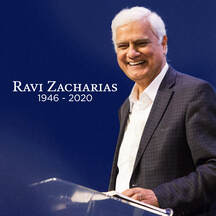
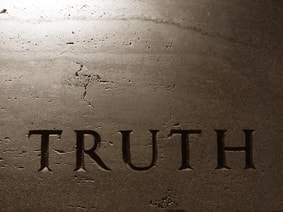
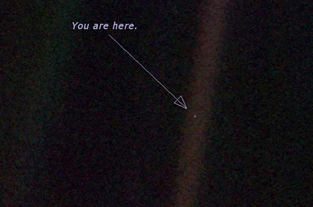


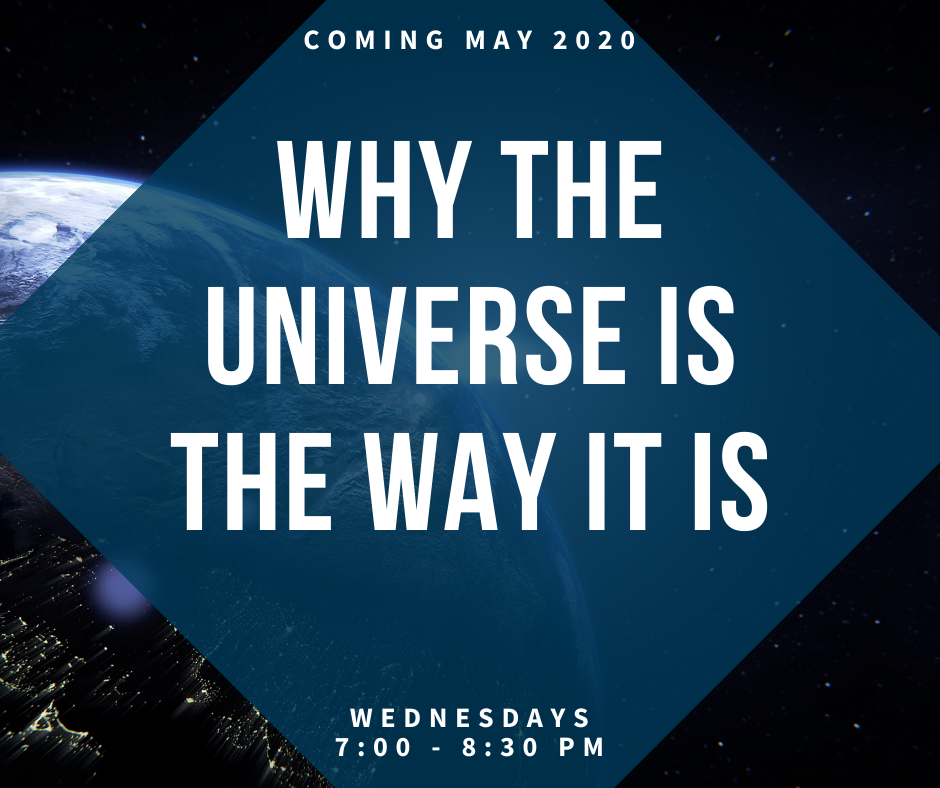
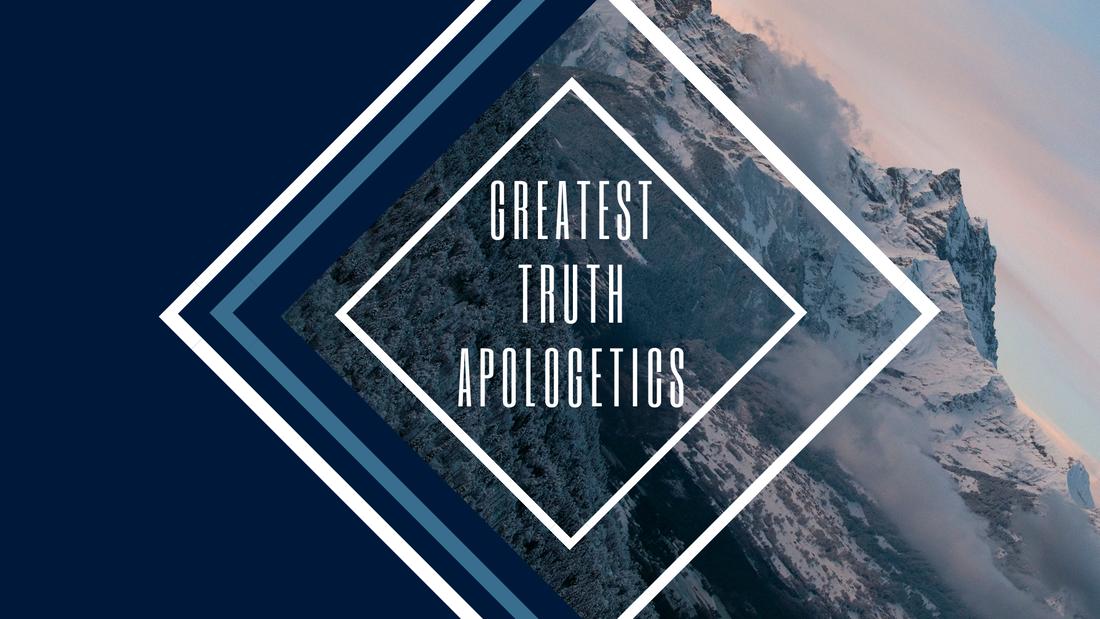
 RSS Feed
RSS Feed